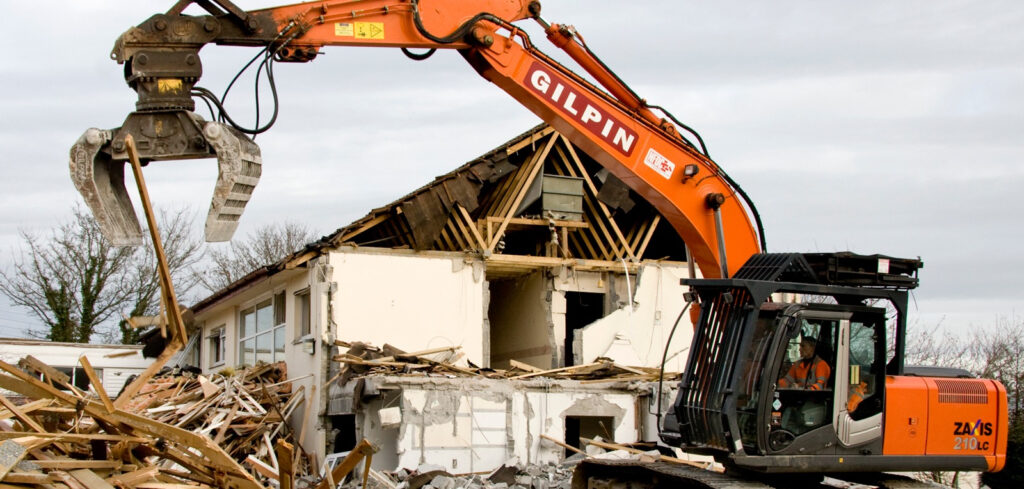House demolition is a critical step in clearing the way for new construction or renovations. It involves the careful dismantling of structures to ensure safety, compliance with regulations, and environmental sustainability. Whether you’re planning to rebuild your dream home or redevelop the land, understanding the nuances of house demolition is essential.

Why Choose House Demolition?
There are several reasons why homeowners opt for demolition services:
1. Old or Unsafe Structures
Aging homes may pose safety risks due to structural damage or outdated building standards. Demolition clears the slate for modern, safer constructions.
2. Redevelopment Projects
Clearing an existing structure allows for innovative designs and the best use of the land.
3. Cost-Efficiency
In some cases, repairing an old house is more expensive than demolishing and rebuilding.
Types of House Demolition
Depending on your needs, there are different approaches to house demolition:
1. Full Demolition
This involves the complete removal of a structure, leaving the site ready for new construction.
2. Partial Demolition
Only specific parts of the house are removed, often for remodeling or extensions.
3. Deconstruction
Also known as “soft demolition,” this method salvages reusable materials, making it eco-friendly.
Steps Involved in House Demolition
1. Assessment and Planning
A detailed inspection determines the scope of work, safety risks, and project requirements.
2. Permits and Approvals
Demolition requires legal permits. Professional contractors handle these to ensure compliance with local regulations.
3. Utility Disconnections
Water, electricity, gas, and other utilities must be disconnected before demolition begins.
4. Demolition Execution
Specialized machinery and skilled labor ensure efficient and safe dismantling of the house.
5. Waste Removal
Debris is cleared, and recyclable materials are separated for eco-friendly disposal.
Factors Affecting House Demolition Costs
The cost of house demolition varies based on several factors:
- Size of the Property: Larger homes require more labor and time.
- Type of Demolition: Full demolition is generally more expensive than partial or deconstruction.
- Material Composition: Homes made of concrete or stone are harder to dismantle than wooden structures.
- Waste Disposal: The volume of debris impacts removal and disposal costs.
- Permits and Legal Requirements: Obtaining approvals can add to the expenses.
Hiring Professional House Demolition Services
To ensure safety and efficiency, hiring a professional demolition company is crucial. Here’s what to look for:
1. Experience
Choose contractors with a proven track record in house demolition projects.
2. Safety Standards
Verify that they follow strict safety protocols to protect workers and the surrounding area.
3. Equipment and Technology
Advanced machinery ensures precision and minimizes environmental impact.
4. Comprehensive Services
From obtaining permits to waste removal, opt for a company offering end-to-end solutions.
Eco-Friendly House Demolition Practices
Sustainability is increasingly important in demolition projects. Many contractors now incorporate eco-friendly methods, such as:
- Material Recycling: Salvaging wood, metal, and other materials for reuse.
- Minimizing Waste: Efficient planning reduces debris.
- Responsible Disposal: Hazardous materials are disposed of in compliance with environmental laws.
Frequently Asked Questions
1. How long does house demolition take?
A typical project lasts 1-2 weeks, but timelines vary depending on the size and complexity of the house.
2. Do I need a permit for house demolition?
Yes, permits are required. Most professional contractors handle the application process for you.
3. Can I live in the house during partial demolition?
It depends on the scope of work. Discuss safety and logistics with your contractor.
4. Are there alternatives to demolition?
In some cases, structural repairs or renovations can achieve similar results without complete demolition.
Conclusion
House demolition is a significant undertaking that requires careful planning, professional execution, and adherence to safety and environmental standards. Whether you’re demolishing a house for new construction or partial renovation, the process opens up opportunities to create modern, functional, and sustainable living spaces.
